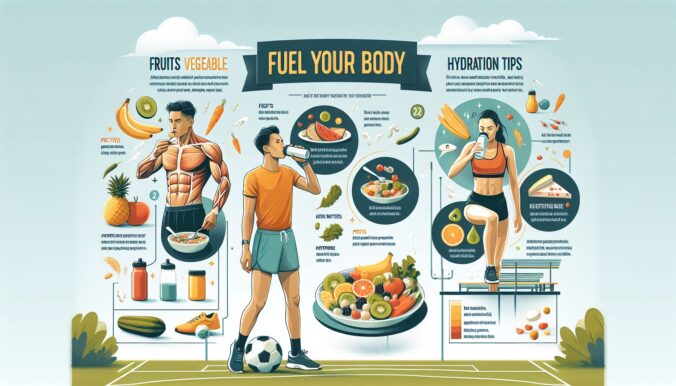For athletes, nutrition plays a critical role in their performance and overall health. Whether you are training for the Olympics or simply striving to improve your fitness level, it is important to fuel your body with the right nutrients to support your training regimen. Here are some diet tips for athletes that will help you stay fit and perform at your best:
Introduction: The Importance of Nutrition for Athletes
Athletes are constantly pushing their bodies to the limit, whether it’s through intense training sessions or high-stakes competitions. To perform at their peak, athletes need to fuel their bodies with the right combination of nutrients. A well-balanced diet can help athletes maintain energy levels, support muscle recovery, and optimize overall performance.
Body: Diet Tips for Athletes
-
Focus on macronutrients: Athletes need to ensure they are getting an adequate balance of carbohydrates, protein, and fats in their diet. Carbohydrates are a key source of energy for athletes, while protein is essential for muscle repair and growth. Fats provide long-lasting energy and support overall health. Aim to include a mix of all three macronutrients in your meals and snacks throughout the day.
-
Stay hydrated: Proper hydration is crucial for athletes, as dehydration can negatively impact performance and recovery. Drink plenty of water throughout the day, especially before, during, and after exercise. Consider incorporating electrolyte-rich drinks or foods, such as coconut water or sports drinks, to replenish lost fluids and minerals during intense workouts.
-
Eat whole, nutrient-dense foods: To support your athletic goals, focus on consuming whole, nutrient-dense foods such as fruits, vegetables, whole grains, lean proteins, and healthy fats. These foods are rich in vitamins, minerals, and antioxidants that can help boost performance, aid in recovery, and support overall health.
-
Time your meals and snacks: To maximize energy levels and optimize performance, athletes should consider timing their meals and snacks around training sessions. Aim to eat a balanced meal containing carbohydrates and protein 2-3 hours before exercise to fuel your workout. After exercise, refuel with a combination of carbohydrates and protein to support muscle recovery and replenish glycogen stores.
-
Listen to your body: Every athlete is unique, and individual nutrition needs can vary based on factors such as age, gender, training intensity, and goals. Pay attention to how different foods make you feel and adjust your diet accordingly. Consider working with a sports dietitian to develop a personalized nutrition plan that meets your specific needs.
Conclusion: Fuel Your Body for Success
As an athlete, your diet plays a critical role in your performance and overall well-being. By following these diet tips, you can fuel your body with the nutrients it needs to stay fit, healthy, and ready to compete at the highest level. Remember to focus on macronutrients, stay hydrated, eat whole foods, time your meals and snacks appropriately, and listen to your body’s unique needs. With the right nutrition plan in place, you can fuel your body for success and achieve your athletic goals. Keep pushing yourself, stay disciplined with your diet, and fight through the pain – the results will speak for themselves.
